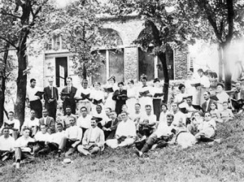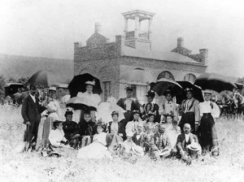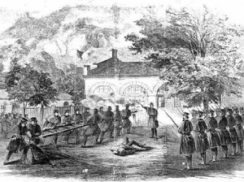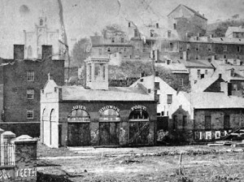This project is set amidst the backdrop of a small town in West Virginia that was pivotal in the lead up to the Civil War. As the home to Storer College, the site for the second conference of the Niagara Movement and the stage for the climactic end of John Brown’s abolitionist work, Harpers Ferry has great significance in the history of race relations.
By engaging in conversations with people who have lived in this town for 80+ years, along with those more recently migrated, the aim is to explore race through the lens of a small town. This narrative inquiry seeks to understand the continuum of reflections, opinions, beliefs and observations on themes of race over time. The lived experiences and shared ideas of local people compel this work.
The Brown House
As envisioned, the Brown House will be developed as a place for reflection, talks, oral history work, community events, retreats, art and cultural installations. It will be a place to host “the poetry of things”; a place for local artifacts to be repurposed and a space for collective ‘meaning-making’. In the tradition of artist, Theaster Gates, the Brown House is envisioned as a “large-scale intervention” that focuses on the “cultural foundations of an underinvested area” (in this instance small-town West Virginia). As with the work of Gates the hope is that it will spark “themes of redevelopment and transformation” and contribute to “complex considerations of race, class, gender, space and culture.”
The spirit of this work is fueled by the spirit of the place itself, social change, and a desire for learning and sharing at the intersections of race and community.
Influencers
The work of Theaster Gates yields important formative ideas for this project. The bold energy and complexity of his hopes for community in Chicago provide key ‘mentorship’ and tacit encouragement for this project which is currently in the initial development phase.
Richard Cuoto’s life’s work provides grounding and sustenance for ongoing considerations of race in America.
Philomela Essed’s finely honed work on ‘everyday racism’ provides kindling and critical frameworks that have influenced our considerations of race.
Ta-Nehisi Coates’ book, Between the World and Me takes the form of a letter to his son, and in so doing, provides a fresh and new way of dialoguing broadly on topics of race.





